Emerging Tech and Sustainability – A Missed Opportunity
The traditional industrial terms of digital technology and environmental sustainability are not intertwined and the compelling factors remain unrelated. Sustainability through Industry 4.0 contribute to developing a better understanding of Industry 4.0 elements and the advanced technologies, considering the key changes in management and emerging opportunities towards sustainable development.
The evolution of digital technologies has put firms in the face of an anticipated change in paradigms and approaches to management. The new technological trends, the advent of Industry 4.0 and the socio-environmental impact make it necessary to reflect on corporate and business strategies and their effectiveness with respect to the new technological context. Businesses need to define newer business models, new implementation modalities, different methods and tools to adapt in this new scenario. Automation, connection and aggregation of different data are phenomenal to the industrial ecosystem that need to be studied in-depth bringing concrete benefits.
However, it is not possible to talk about innovation and industry without reference to sustainable development and sustainability. While Industry 4.0 can help in achieving sustainable development, sustainability represents a significant opportunity for firms to effectively compete in the current scenario. Indeed, it is essential that technological and industrial developments allow the achievement of environmental, economic and social sustainability objectives. Therefore, firms should be able to effectively use tools and opportunities pertaining to Industry 4.0 in shaping their organization, strategies, policies and operations to achieve a sustainable development and/or foster sustainability at a more general level.
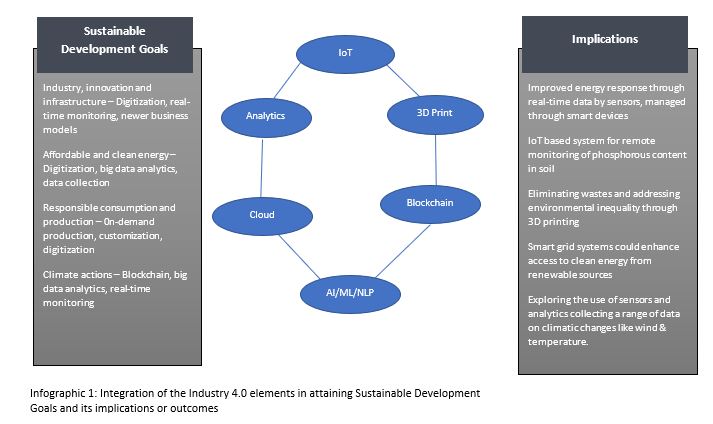
Industry 4.0 and sustainability are transversal themes occurring in all parts of the production chain and at the enterprise level. The new evolution of the industrial process and the implications of emerging technologies have a potential impact on sustainability. Integrating Industry 4.0 with the sustainable development goals can impact environmental realization and drive innovation. Thus, to produce within the paradigm of overall sustainability implies in the right allocation of natural resources, waste reduction, monitoring of energy consumption and maintaining an ecological balance. Organizations embracing sustainable industry 4.0 could drive green consumerism aligning itself to environmental upgrades.
Industry 4.0 in Driving Sustainability
Industry 4.0 principles primarily focus on providing solutions to the diverse industrial problems such as standardization of systems, platforms, protocols, digital skill sets and security. In addition, the growing digitization impacts and shift from legacy business models is also a growing concern. However, producing within environmental standards also adds up to the Industry 4.0 agenda.
The increasing trend in energy demand and non-renewable resources responsible production, climate actions, industry infrastructure are driving the urgent requirement of adopting environmentally standardized digital technologies and build a low-carbon energy system. Hence, the industry should attribute Industry 4.0 in how it promotes the changes and affect the ìndustry value chain, consumption of energy, waste, assets and information. Over the coming years, with the fresh entry of digital technologies and the foundation technologies like cloud, big data and analytics will overhaul the industry and pave for disruptive new businesses.
Yet, amid all the new business models and innovations the adoption of advanced technologies will be a significant opportunity for Sustainable Development Goals. Since the industrial initiatives must be geared towards sustainability, Industry 4.0 provides massive opportunity for the realization of sustainable value creation across industries.
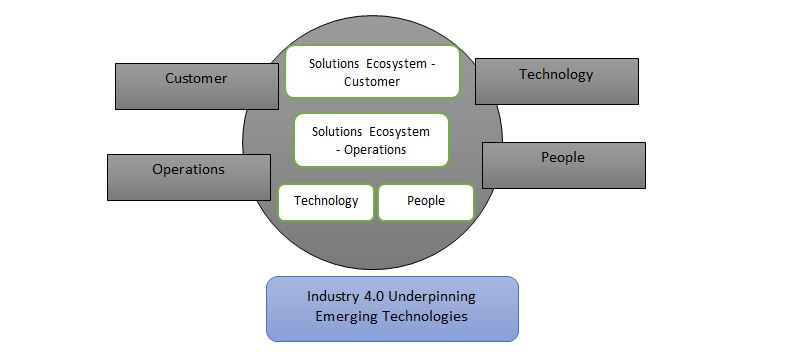
Industry 4.0 ecosystem
The Industry 4.0 activities are relevant to each scenario of the ecosystem and could be linked to sustainability through adoption of the underpinning technologies. The essential components relevant to Industry 4.0 are raw materials, energy, products, waste, other resources and data flow.
The changes that may occur during the various applications of emerging technologies and implications of the Industry 4.0 value chain can contribute in the environmental sustainability. The collection of huge chunks of data and the opportunity to infer decisive insights through the adoption of technologies for more advanced processes are crucial for Industry 4.0.
While the Internet of Things generates real-time energy consumption data and enables analysis at the machine level to improve energy awareness, the smart manufacturing or production systems will require the data pool to support the network and infrastructure requirements.
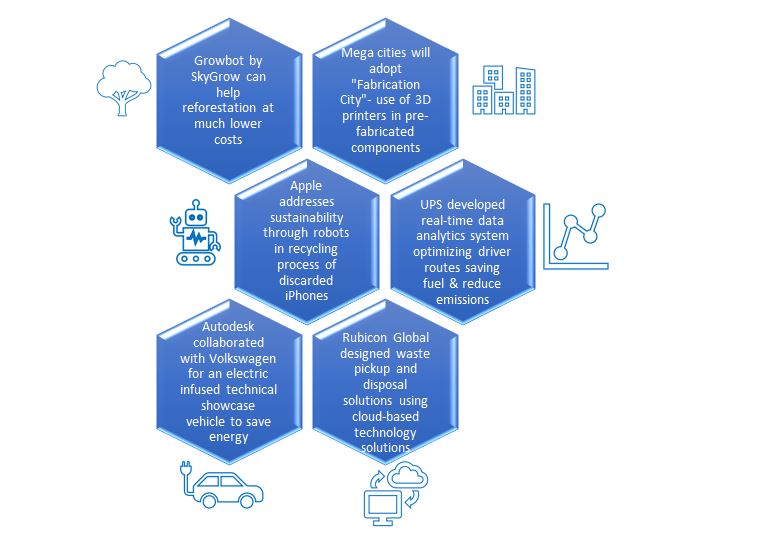
Use cases aligned to Sustainable Development Goals
By adopting and scaling the right technologies to drive corporate sustainability organizations can experience profitability, reduce the global impact and seize the competitive advantage by becoming climate leaders. Find out How to Achieve More Sustainable Manufacturing Practices
A Balanced Approach to the Coaction of Sustainability and Industry 4.0
Industry 4.0 can provide support through continuous resource management and digitization of production processes due to the availability of real-time information on each point of the production process. Although, digital technology and sustainability are corelated the interplay of technologies and the environmental impact are positioned by different functions. The application of these emerging technologies requires a robust sustainability framework that addresses its economic and social impacts. Building capabilities and developing sustainability managers, creating data-driven operational activities, expanding in markets implementing circular economy principles and engaging strategically with the stakeholders at a holistic level are few of the probable inclusions to pursue a sustainable balance of value creation.
The novel business models of enterprises would drive eco-innovation creating sustainable value. However, the stakeholders to the new paradigm in implementing Industry 4.0 elements would include the reaction of society, business and government.
![]() This article was written by Titli Chatterjee. She has been leading ER&D/Industry 4.0 research initiatives of NASSCOM, having experience in research and consulting in the areas of emerging technologies and engineering services. In her current role as Manager – Research, she is closely working with the industry leaders, start-ups, government and other stakeholders in formulating a roadmap in disruptive technologies for Indian IT-BPM industry and highlighting how technology can be a game changer at the industrial front.
This article was written by Titli Chatterjee. She has been leading ER&D/Industry 4.0 research initiatives of NASSCOM, having experience in research and consulting in the areas of emerging technologies and engineering services. In her current role as Manager – Research, she is closely working with the industry leaders, start-ups, government and other stakeholders in formulating a roadmap in disruptive technologies for Indian IT-BPM industry and highlighting how technology can be a game changer at the industrial front.
Sorry, the comment form is closed at this time.
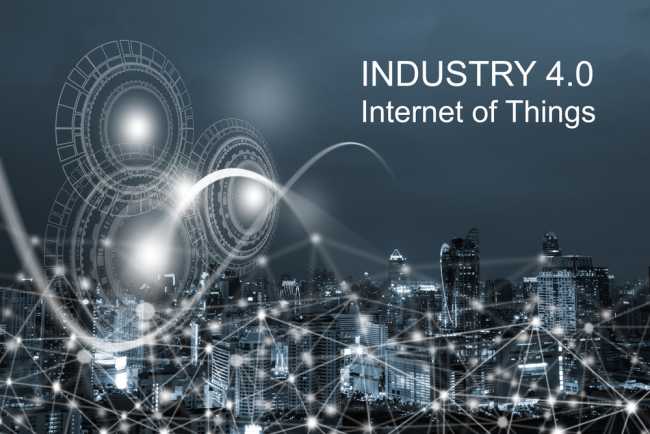
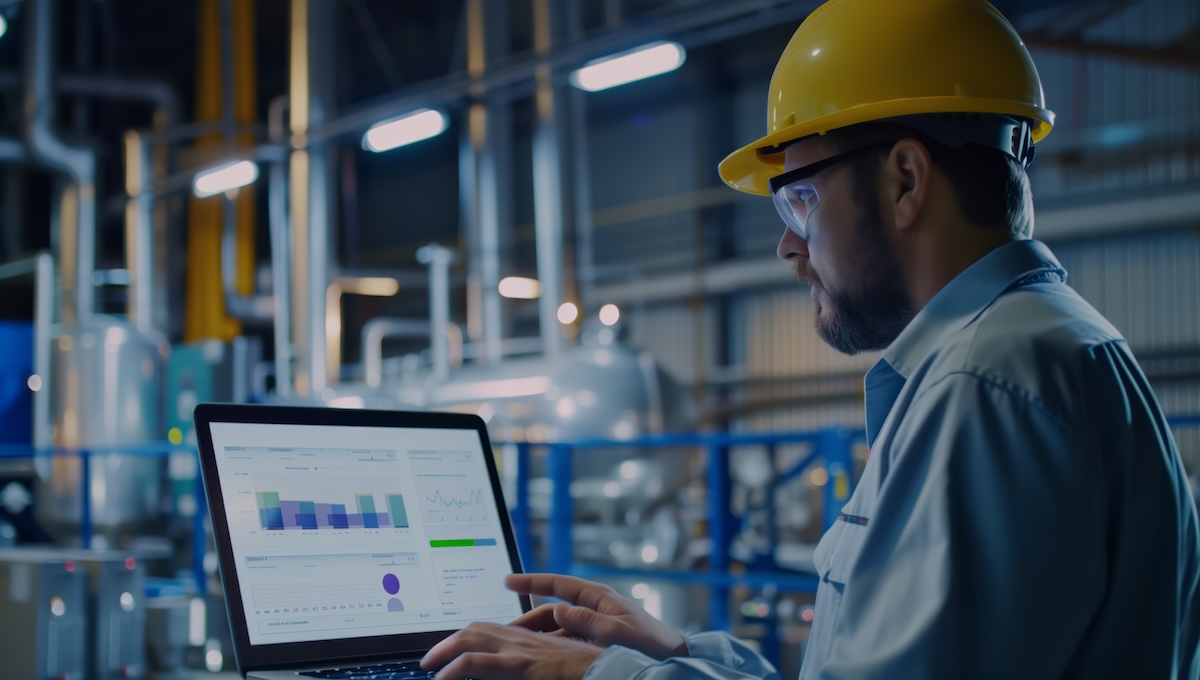

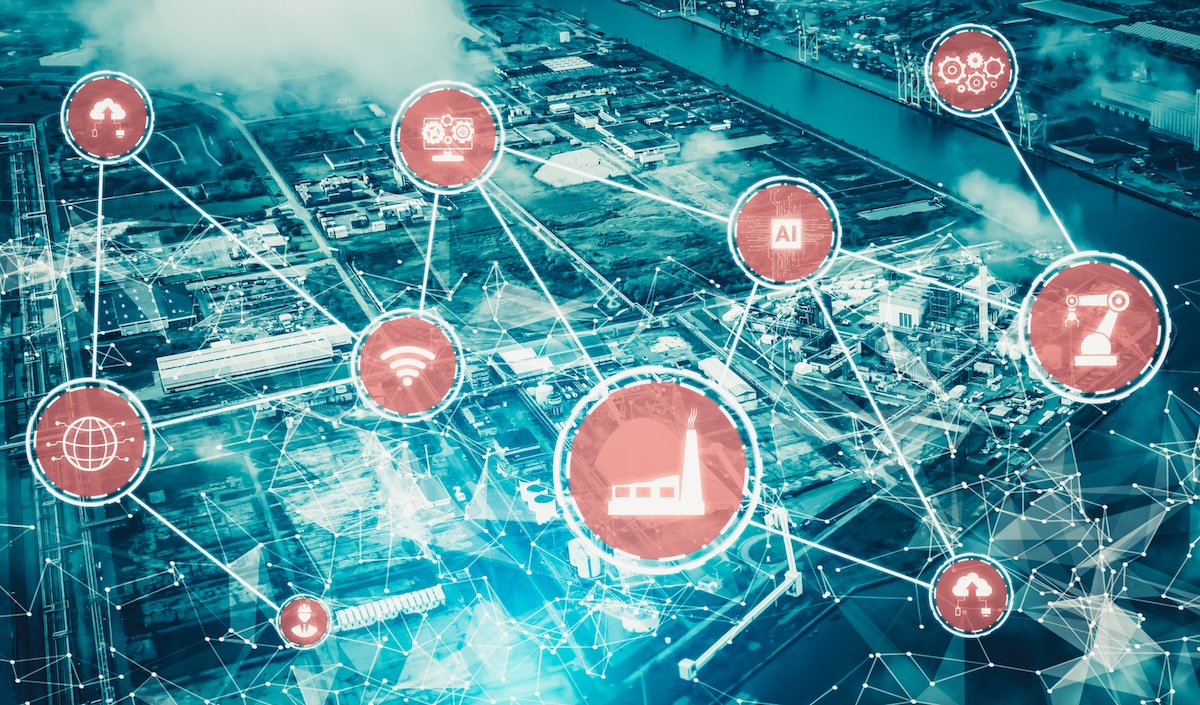
Pingback: Emerging Tech and Sustainability – A Missed Opportunity – IoT – Internet of Things
Pingback: Emerging Tech and Sustainability – A Missed Opportunity • The Circular Economy